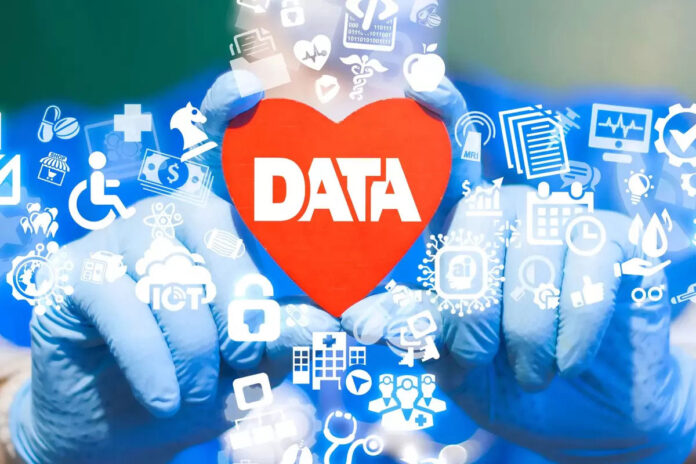The region is currently witnessing an acceleration in the development of its healthcare infrastructure, with its focus shifting away from major central and multi-specialty hospitals to centers for diagnostic, treatment and highly specialized care.
The change effort also extends to improving the quality of patient-centered services. New technologies such as big data analytics, artificial intelligence, and the Internet of medical things (IOMT) will play very important roles in enabling this by transforming the current fragmented approach to healthcare into a truly integrated, patient-centered ecosystem.
The national agendas for the countries of the GCC region focus on shifting to proactive care models to prevent cancer and lifestyle-related diseases such as diabetes, obesity, and cardiovascular disease.
During 2015, Non-communicable diseases accounted for nearly three-quarters of all deaths recorded in the Gulf Cooperation Council (GCC) countries and projected to reach 87% in the MENA region by 2030.
Big data is expected to radically change the face of the health sector in the region over the next few years, by enabling disease prediction and thus prevention, and addressing many of the challenges facing the sector, such as increasing costs due to population growth and increasing life expectancy.

Thanks to the development of data analytics systems, it is easy to analyze each patient’s data with high accuracy, and thus to make more informed decisions when prescribing treatment. The merging of health and public data will also allow the creation of new health systems, reducing costs and enhancing quality.
In addition, extracting data from various smart sensors, known as the “Internet of Things”, will raise the level of prediction in the field of healthcare, and the wearable biosensors will allow raising the level of preventive healthcare through continuous monitoring of vital signs such as blood pressure and heart rate for the purposes of diagnosis and treatment. Diseases.
There are also many uses for nano-sensors that can be swallowed or implanted under the skin to monitor vital signs such as temperature and flow inside the body.
The National Health Services Authority (NHS) in the United Kingdom has a well-established central database that has given it a leading position globally in the quality, volume, and analysis of health data, which has helped it to move national healthcare to the next level of sustainable practices and efficient use of resources.
Unified electronic health records are among the direct results of this field, and are distinguished by their design that focuses on patient care and providing medical data to all healthcare providers directly and without delay.
These records maintain and update an individual’s detailed medical history, making them an effective tool for monitoring and evaluating a patient’s health status.
In addition, health records can be circulated between healthcare providers across all mobile devices, making it easy for them to consult, accurately diagnose cases and prescribe the most effective treatment, while ensuring the privacy of patients.
As a world leader in the development of health technology, the UK is committed to working cooperatively with its partners in the Gulf Cooperation Council countries to support them in achieving their healthcare visions.
During Arab Health 2017, the UAE-based healthcare management company, “Health Bank“, used the expertise of the British TPP to provide an innovative program of “SystmOne” for the central electronic health records, with the aim of strengthening Dubai’s position as a global destination for medical tourism, and forming a unified platform that ensures smooth coordination.
Between the various healthcare providers to provide the client with all the data and information necessary to start the treatment journey that best suits his needs. Now, the British company is preparing to forge other partnerships in the region to support the digital transformation of its private health sector.
With the region organizing many major events that attract huge human gatherings such as the Hajj and Expo 2021, big data can be a field of enormous value, as sharing the analysis of records with public health agencies will allow them to largely predict epidemics and prepare to respond effectively, which contributes to strengthening The safety of societies.
No wonder that most sectors are now at a crossroads, either keeping pace with the technological change taking place or risk being left behind, whether in terms of efficiency or preparation for the future.
Of course, healthcare is not an exception, and in fact, it may be one of the sectors most benefiting from this new era of rapid change, it will be one of the most utilizing sectors for big data in healthcare.
Despite the great progress that it has achieved, the Gulf countries continue to develop their high-quality health services relentlessly and support them in various ways and methods, whether by providing the latest in medical technologies in the world or developing human cadres to ensure that they are qualified to apply the best advanced medical practices or the conclusion of partnership agreements with global medical institutions.
Therefore, the United Kingdom’s Department of International Trade is committed to working with ministries of health across the Middle East, linking them with leading British technology companies in their fields, and sharing experiences, standards, and protocols with governments and companies. This enables all parties to find solutions to the common challenges facing Britain and the countries of the Gulf Cooperation Council with regard to the effective management of healthcare systems.
If you liked this article, please don’t forget to share your thoughts and best with HBC in the comments and let us know your opinion about big data and its utilization in healthcare for the Middle East and African countries. If you have valuable content to share on Healthcare Business Club you can publish your content for free and share your knowledge with all healthcare business professionals, send your articles to the HBC editorial team on [email protected] please don’t hesitate to contact us at any time.

